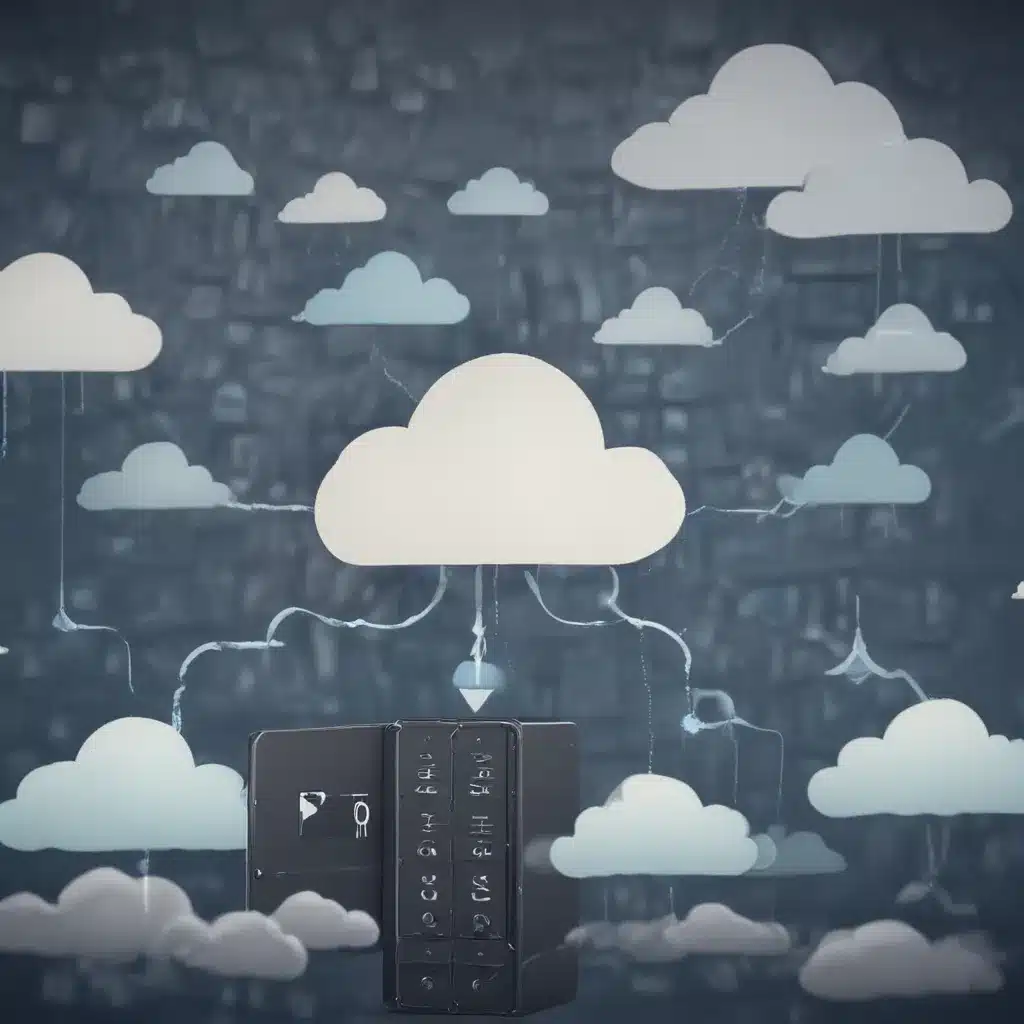In the ever-evolving world of data management, businesses face a critical decision – should they opt for cloud backup or local backup? Both approaches have their unique advantages and disadvantages, leaving many entrepreneurs scratching their heads, wondering which one is the right fit for their company.
As the owner of a UK computer repair service, I’ve had countless clients come to me, seeking guidance on this age-old debate. And let me tell you, it’s a tough one to crack. After all, the choice you make can make or break your data security, and that’s no laughing matter.
So, strap in, my friends, because we’re about to dive deep into the world of cloud and local backups, exploring the pros and cons of each, and hopefully, by the end of this article, you’ll be equipped with the knowledge to make an informed decision that aligns perfectly with your business needs.
The Cloud Backup Conundrum
Let’s start with the cloud backup option, shall we? Picture this – your data, safely tucked away in remote servers, accessible from anywhere with an internet connection. Sounds pretty convenient, doesn’t it? [1] Well, that’s one of the primary advantages of cloud backup – the ability to access your files from any device, no matter where you are.
But, as with anything, there’s a catch. While cloud backup may offer increased accessibility, it also raises concerns about data security. After all, who knows who might be lurking in those virtual server halls, waiting to pounce on your sensitive information? [2] That’s why it’s crucial to ensure that your cloud backup provider has robust security measures in place, like advanced encryption protocols and rigorous access controls.
Another potential downside of cloud backup is the reliance on a stable internet connection. If your internet goes down, or your provider experiences an outage, you might find yourself in a bit of a pickle, unable to access your precious data. [3] And let’s not forget the potential financial implications – cloud backup often comes with a monthly or annual subscription fee, which can add up over time.
The Local Backup Advantage
Now, let’s shift our focus to the local backup option. Imagine your data, safely tucked away in a physical device, right there in your office or home. No need to worry about internet outages or third-party providers – it’s all under your control. [4]
One of the primary benefits of local backup is the sense of security it provides. After all, your data is physically present, and access is limited to those within your immediate vicinity. This can be a significant advantage in the face of cyber threats, as your local backups are less vulnerable to remote breaches.
However, local backup is not without its own set of challenges. For starters, there’s the risk of physical damage or theft. If a disaster strikes, such as a fire or flood, your local backups could be wiped out in an instant. [5] And let’s not forget the upfront costs of purchasing and maintaining the necessary hardware and software.
The Hybrid Approach: Finding the Perfect Balance
Alright, now that we’ve explored the pros and cons of both cloud and local backup, you might be wondering, “Is there a way to combine the best of both worlds?” The answer is a resounding yes – enter the hybrid backup approach.
The hybrid backup strategy involves using both cloud and local backup in tandem, creating a robust and resilient data protection system. [6] The way it works is simple: you keep your data in three places (two local backups and one cloud backup), ensuring that if one of your backups is compromised, you have a fallback option.
This approach not only provides the convenience of cloud accessibility and the security of local control but also adds an extra layer of protection against disasters or cyber attacks. [7] Plus, with advancements in technology, you can find solutions like Acronis Cyber Protect that seamlessly integrate cloud and local backup, making the entire process a breeze.
Conclusion: Making the Final Call
So, there you have it, folks – the eternal cloud backup vs. local backup debate, laid out for you to ponder. As you can see, there’s no one-size-fits-all solution, and the decision ultimately comes down to your business’s unique needs and priorities.
If accessibility, scalability, and offsite protection are your top priorities, then cloud backup might be the way to go. [8] But if you value control, ownership, and physical security, local backup could be the better choice.
Personally, I’m a big fan of the hybrid approach. It’s the best of both worlds, and it gives me the peace of mind knowing that my data is safe, no matter what life throws my way. But hey, that’s just my two cents – the choice is yours, my friend.
Whichever path you choose, remember this: data security is no laughing matter, and it’s something you can’t afford to take lightly. So, do your research, weigh your options, and make a decision that will keep your business thriving for years to come.
Happy backing up!
[1] Knowledge from https://community.spiceworks.com/t/backing-up-cloud-data-to-local-storage/830526
[2] Knowledge from https://answers.microsoft.com/en-us/windows/forum/all/what-is-the-difference-between-cloud-download-and/8bcbe3ca-432a-4dd1-955a-04118374a914
[3] Knowledge from https://www.libertytech.net/cloud-backup-vs-local-backup-which-offers-better-data-security/
[4] Knowledge from https://www.acronis.com/en-us/blog/posts/cloud-vs-local-backup/
[5] Knowledge from https://forum.msp360.com/discussion/2604/backup-server-to-local-nas-and-cloud-storage
[6] Knowledge from https://forums.veeam.com/veeam-backup-replication-f2/cannot-find-local-host-t43655.html
[7] Knowledge from https://discourse.joplinapp.org/t/backup-the-best-way/29267
[8] Knowledge from https://forums.veeam.com/object-storage-as-a-backup-target-f52/removal-of-sobr-t89516.html













